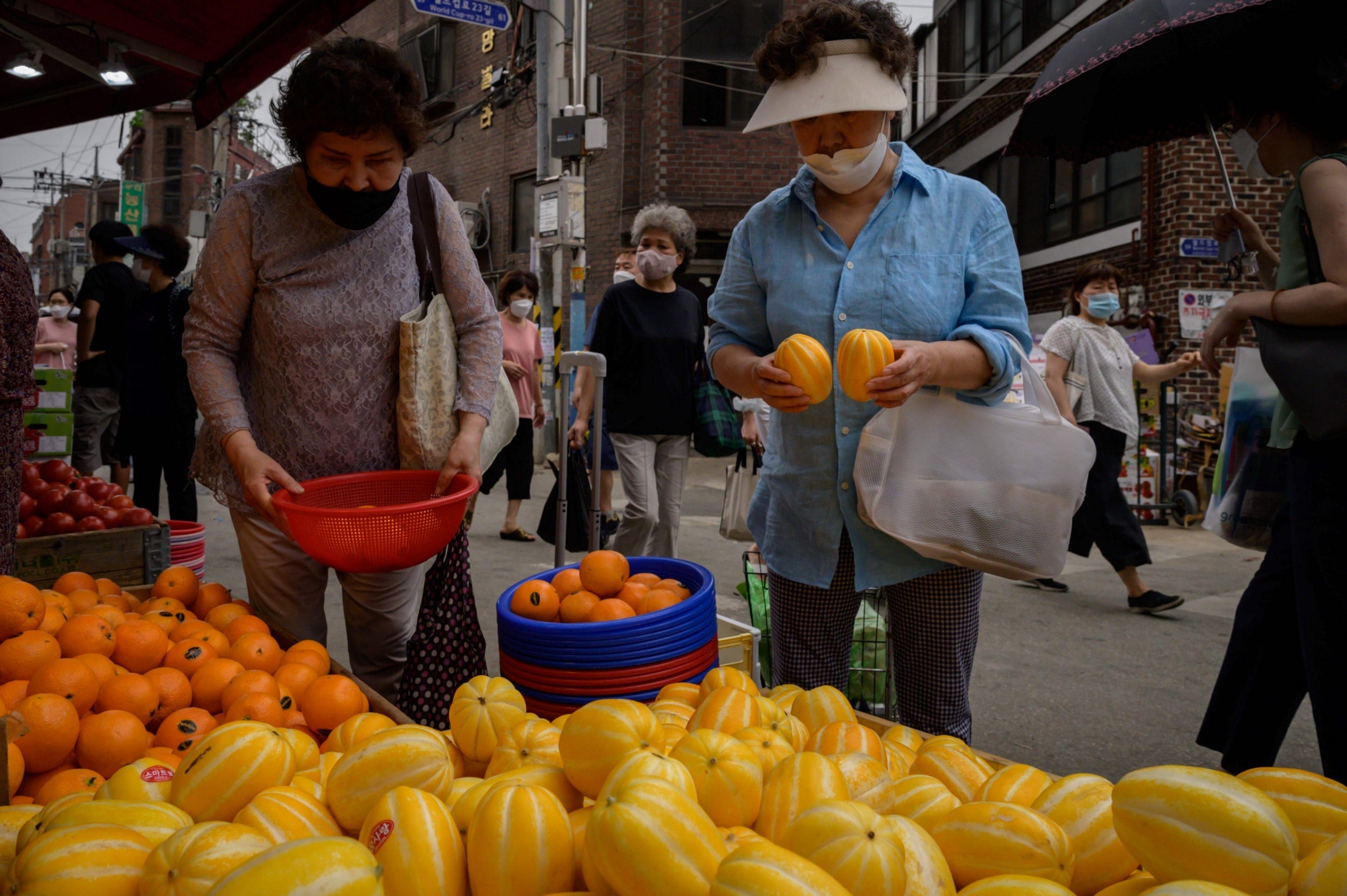South Korea could see second wave of coronavirus as Seoul infection rate leaps to highest level in 12 weeks
Significant clusters of infection in capital have been linked to reopened nightclubs, warehouses and religious gatherings, Adam Withnall reports


South Korea is struggling to contain a spike in new coronavirus cases in Seoul, with the outbreak in the capital now spreading faster than at any point during the pandemic so far.
The country reported 50 new cases on Wednesday, of which 40 were locally transmitted in the Seoul metropolitan area, where significant clusters of infection have been linked to nightclubs, warehouses and religious gatherings.
The spike has proven to be persistent, with a rolling average of Seoul government data showing between 18-20 new cases added each day since Sunday, according to a Yonhap analysis. The previous peak in Seoul’s daily average was 17 on 14 March.
President Moon Jae-in’s government has received international acclaim for the way it has handled South Korea’s Covid-19 outbreak, avoiding a total lockdown through a combination of rigorous social distancing and a stringent test and trace policy.
The country was one of the first to be hit by the virus after China, and recorded 9,786 cases by the end of March. In early March, it was reporting around 500 new cases a day. By late April, however, daily transmissions were brought down to nearly zero. Even with the new spike in cases, the country’s total tally of infections is still only 11,902, with 276 deaths.
Most of the country’s strictest social-distancing measures were lifted on 6 May, after which there was a noticeable uptick in daily cases nationwide.
But the spike in the capital has caused particular concern, described by health minister Park Neung-hoo as a string of “sporadic infections” linked to “facilities vulnerable to infections and through gatherings”.
That’s partly because more than a quarter of Seoul’s new cases have been in patients aged 65 or over. The spike has corresponded to a rise in the number of people receiving hospital treatment for coronavirus – up to 359 on Wednesday, and nearing the all-time high of 408 recorded on 5 April.
At the end of last month, schools in the capital were closed – many just days after they opened up – and members of the public have been urged to work from home and avoid gatherings where possible.
Health officials don’t yet see the new spike in cases as a second wave of what they call “mass infection”, but are concerned that this is the direction the country is headed in if the current situation continues.
“At a time when group infections have spread out in the densely populated metropolitan area, if we fail to break the transmission chain, we cannot rule out the possibility of more mass infections,” said Jung Eun-kyeong, director of the Korea Centres for Disease Control and Prevention.
When Seoul reintroduced some restrictions on 29 May, including the closure of museums, art galleries and parks, the health minister Mr Park said the new measures would be in place at least until 14 June.
“The next two weeks are crucial to prevent the spread of the infection in the metropolitan area,” he said at the time, adding: “We will have to return to social distancing if we fail.”
The World Health Organisation has said that if past pandemics are a guide, all countries should expect to see “waves of activity spread over months” until the virus can be eradicated.
With its 51 million population and comparable economy (12th in the world by GDP), South Korea has been held up as an example of a country that took a different approach to the UK on tackling the pandemic, with drastically different results.
And even if a second wave does materialise as the country opens back up, it would take only a “glaring misstep” to reverse the positive public impression of the government’s handling of the crisis, said Leif-Eric Easley, a professor at Ewha University in Seoul.
“President Moon and his Democratic Party received a boost in the polls from South Korea’s adept handling of Covid-19,” he told The Independent. “A resurgence of the virus would produce public dissatisfaction, but the political implications may be limited… [given] the opposition doesn’t offer a clear alternative to government policy.”
He added that the next test at the ballot box will not be until the presidential election in 2022 – a vote that is “a long way off, and likely to be fought over the post-pandemic economy”.
Join our commenting forum
Join thought-provoking conversations, follow other Independent readers and see their replies
Comments
Bookmark popover
Removed from bookmarks